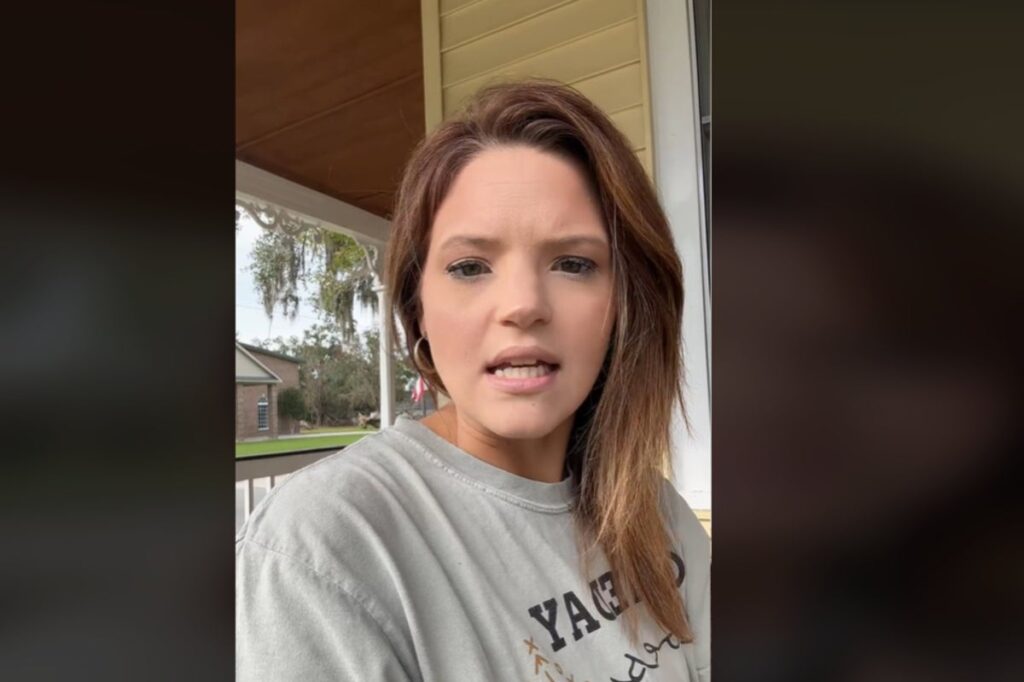A recent incident in Florida involving an Airbnb rental has sparked discussions about empathy and accountability, particularly in light of natural disasters. Kaitlynn Thayer, a mother of five, took to TikTok to express her frustration with a beachfront property owner on Amelia Island after her family was denied a refund for their upcoming vacation, which coincided with Hurricane Milton’s projected landfall. On October 9, Hurricane Milton struck the region, bringing destruction that led to 23 fatalities and left over a million homes without power. As the storm approached, an evacuation order was issued for certain areas of Amelia Island, prompting Thayer to seek a modification of her planned trip. She requested a delay in her arrival, planning to travel on October 11 instead of October 9, to ensure that they would not be driving into a dangerous situation.
Despite Thayer’s attempts to communicate with the Airbnb host, she met with adamant refusal for a refund or rescheduling of their stay. The host suggested the Thayers could just go on with their plans but offered no understanding towards the family’s concerns about travel safety, particularly with children in tow, amidst the impending hurricane. Thayer expressed her bewilderment at the lack of empathy displayed by the host. In her viral TikTok post, which garnered more than 160,000 views, she highlighted critical factors that influenced her decision to postpone, including concerns for her family’s safety due to expected storm conditions and the potential impact on local emergency resources.
Initially, the host seemed to overlook the seriousness of the situation, causing Thayer to question their understanding of her predicament. Even after clarifying the pressing circumstances, the host maintained a firm stance against any refunds. Thayer, who is also a business owner, lamented the ethical implications of charging someone for services they would not be receiving, emphasizing how this decision contradicted basic notions of empathy and responsibility, especially in the context of a natural disaster. Given the storm’s daunting strength and the evacuation order, Thayer felt strongly that the right choice should prioritize human safety over monetary gain.
After exhausting options with the host, Thayer reached out to Airbnb’s customer support, but initially found little recourse. However, once part of Amelia Island fell under an evacuation order shortly before the family was meant to arrive, Airbnb’s executive team intervened and eventually processed a full refund for the Thayers. This turn of events not only alleviated the financial strain on the family but also underscored Airbnb’s policies related to emergency responses. The company has a ‘Major Disruptive Events’ protocol that allows for the cancellation and refund of bookings due to circumstances like severe weather alerts or mandatory evacuations.
Thayer’s situation drew attention to the nuances of Airbnb’s policies regarding refunds, particularly during disasters. While their established policies do allow hosts and guests to cancel without penalties under specific emergency conditions, the results can vary greatly based on individual host decisions. This reality raises questions about the obligations of property owners during crisis situations and the potential consequences for those who may prioritize profit over the well-being of their guests. The incident serves as a reminder for the importance of clear communication, empathy, and understanding in service-oriented businesses, especially when external factors like natural disasters complicate agreements.
Ultimately, this instance reflects broader themes of community responsibility and individual accountability in the face of emergencies. Thayer, aiming to keep her family safe and uphold her duties as a responsible foster parent, hoped to negotiate with the host rather than cancelling entirely. By sharing her story, she highlighted the need for understanding when dealing with unexpected and dangerous situations, urging other Airbnb hosts to consider the safety and needs of vulnerable guests. The overall experience illustrates the delicate balance between ensuring business viability while also extending compassion and human decency during distressing times.

